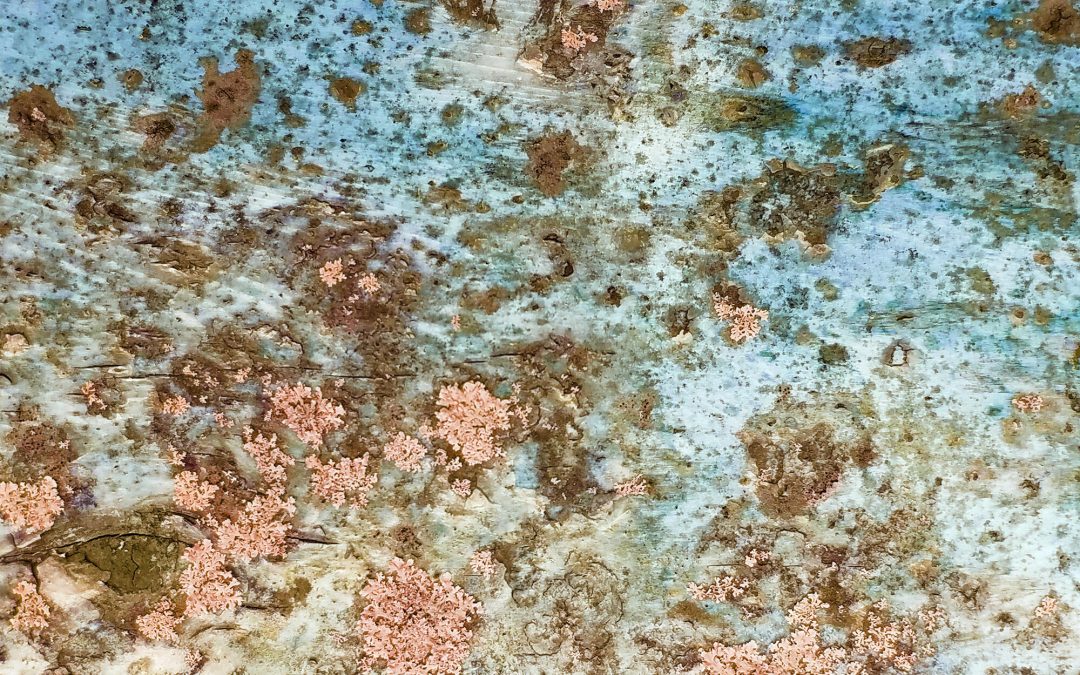According to the University of Central Florida (UCF), the world is home to at least 100,000 described species of fungi, and many more await discovery. Mushrooms are among the most popular, considering many are edible. Then, there are the more infamous molds, which, if found inside homes, often fall under the category of “pests.”
Unfortunately, indoor molds can be more than just a nuisance; they can cause significant property damage and adverse health effects. Worse, they often “fruit” in hiding, emitting unpleasant odors from the “safety” of wall cavities.
So, what does mold smell like in walls, then? What are other typical wall mold signs, and how do they affect your home and health? Most importantly, what should you do if you suspect you have molds inside the walls of your Orlando or Central Florida home?
Our team of mold pros at Elite Mold Services will answer all those questions below, so please read on.
What Does Mold Smell Like in Walls?
Molds inside wall cavities smell differently depending on the species. Here are some examples of various molds often found on and inside walls and wallpaper and how they smell:
- Acremonium: An unpleasant pungent smell
- Aspergillus: A musty, earthy scent akin to the odor of soil
- Aureobasidium: A musty smell
- Penicillin: A musty, earthy odor with a touch of cigar-like smell
- Stachybotrys chartarum: Meaty, pungent, musty, or a smell similar to decaying hay or decomposing foliage
Mold odors depend not just on the species but also on their colonies’ size. The bigger the colony, the more molds could produce microbial volatile organic compounds (mVOCs). mVOCs, being highly volatile (quick to evaporate at room temperature), are the substances behind molds’ distinct odors.
What Are Other Typical Wall Mold Signs?
Signs of molds in walls of Central Florida homes can also differ depending on the wall material. For example, if you have moldy wooden walls, you may notice the following symptoms:
- Wood buckling or warping
- A hollow sound when you tap the walls
- Crumbling of the wood
- The musty and earthy smell of wood decay
- Walls feel damp or moist
What if you have concrete walls? Do molds even grow on concrete?
Yes, molds can grow concrete. They often grow in the space between the wallpaper and the wall. In this case, you may notice discoloration or stain-like blotches on your wallpaper.
How Do Molds Affect Your Home and Health?
Because molds feed on organic material, such as paper and wood, they can cause significant property damage. The longer you allow them to feast on your Central Florida home’s wooden walls and structures, the more extensive the damage they can cause (as evidenced by the symptoms discussed above).
An even more significant concern is how molds release spores that can lower indoor air quality (IAQ). As the U.S. EPA points out, the adverse effects of poor IAQ include:
- Eye, nose, and throat irritation
- Fatigue
- Headaches
- Dizziness
- Infections
- Respiratory diseases
- Heart disease
Touching mold may also result in skin redness or rashes, especially in people with mold allergies.
What to Do if You Suspect You Have Molds Inside Walls?
If you suspect you have mold inside your walls, the next step is to determine if you meet the following conditions:
- The household mold odors are only noticeable in a specific room/rooms
- No visible signs of mold growth
- Walls exhibit the symptoms discussed above
- Mold smells intensify the closer you get to the wall
- You or your family members get the sniffles in the room you suspect have molds inside walls
If you meet one or more of the above conditions, it’s best to consider professional mold detection and inspection services. Mold experts, like our team at Elite Mold Services, use state-of-the-art technology to find and confirm the presence of molds in your home, including those in walls.
What Happens After a Mold Inspection?
If you partner with Elite Mold Services, we may recommend specific testing after our mold inspection service. However, it will still depend on our findings and the extent to which the molds we’ve discovered affect your health and that of your family members.
Why Test for Molds?
Regardless of how thorough a visual inspection is, it isn’t enough to identify specific mold species. Even the most experienced and educated mycologists (fungi scientists) won’t be able to tell whether a mold produces mycotoxins (toxins produced by fungi) just by looking at it.
Laboratory testing helps accurately identify mold species. Species identification can help establish how dangerous the molds in your home can be. For instance, if they are Stachybotrys chartarum, also known as “toxic black mold.”
If you encounter someone offering mold inspection services telling you they can identify molds with a visual inspection, please take your business elsewhere.
What About Mold Remediation?
Whether or not we recommend specific tests, we’ll give you expert remediation guidance and mold prevention tips. As an inspection and testing company, we don’t provide remediation services because it’s unethical.
While Elite Mold Services doesn’t offer remediation, we can provide references. Our references include information on remediation contractors we’ve worked with who can give you mold clean-up estimates.
Also, please note that Florida Statutes have specific laws regulating mold-related service licensing, assessment, and remediation:
- § 468.84: Requiring mold-related service providers to have the appropriate license
- § 468.8419(1)(d): Prohibiting mold assessors from offering to perform or performing remediation if they’ve provided an assessment to the same customer within the last 12 months
- § 468.8419(2)(d): Prohibiting mold remediators from offering to perform or performing mold assessment if they’ve provided remediation services to the same customer within the last 12 months
Do You Smell Molds Inside Your Walls?
Now that we’ve answered the question, “What does mold smell like in walls,” you can use what you’ve learned (including other signs to look out for) and your olfactory senses to gauge whether you have a mold issue. If you strongly suspect that you do, the next step is to consider partnering with us at Elite Mold Services.
Our company and Florida-licensed mold assessors have proudly served Central Florida since 2006 and have 60+ years of combined experience. They also have many other qualifications, including ACAC, NORMI, and IAC2 certifications.
Contact us today to learn more about services or to schedule your mold inspection!

